Team
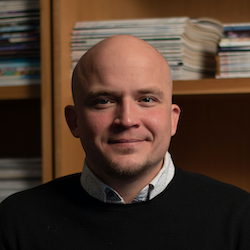 Jüri Reimand (PI).
I am a principal investigator of computational biology at the Ontario Institute of Cancer Research (OICR) and associate professor at University of Toronto (UofT) at the departments of Medical Biophysics and Molecular Genetics. I completed a PhD in computer science at the University of Tartu in Estonia in 2010 and postdoctoral training at the Donnelly Centre (UofT) during 2011-2015. I started my lab at OICR and the faculty appointment in 2015. I am interested in computational biology, machine learning, and cancer research.
@reimand
Jüri Reimand (PI).
I am a principal investigator of computational biology at the Ontario Institute of Cancer Research (OICR) and associate professor at University of Toronto (UofT) at the departments of Medical Biophysics and Molecular Genetics. I completed a PhD in computer science at the University of Tartu in Estonia in 2010 and postdoctoral training at the Donnelly Centre (UofT) during 2011-2015. I started my lab at OICR and the faculty appointment in 2015. I am interested in computational biology, machine learning, and cancer research.
@reimand
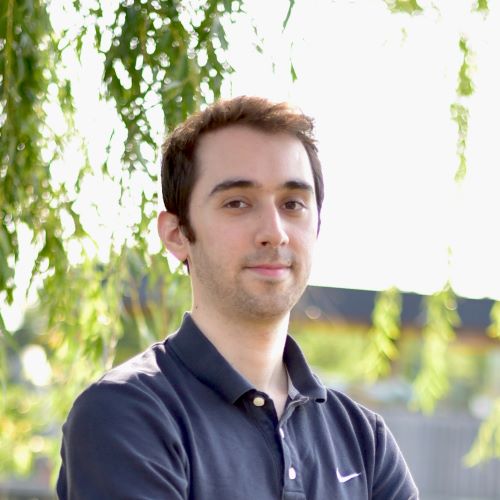 Masroor Bayati (graduate student).
I am a PhD student in Medical Biophysics at the University of Toronto. My research is focused on the application of machine learning in identification of novel prognostic cancer biomarkers by leveraging multi-omics data. Currently, I am investigating the prognostic value of the interactions between cancer genetic events and the immune cell composition in tumor microenvironment.
Masroor Bayati (graduate student).
I am a PhD student in Medical Biophysics at the University of Toronto. My research is focused on the application of machine learning in identification of novel prognostic cancer biomarkers by leveraging multi-omics data. Currently, I am investigating the prognostic value of the interactions between cancer genetic events and the immune cell composition in tumor microenvironment.
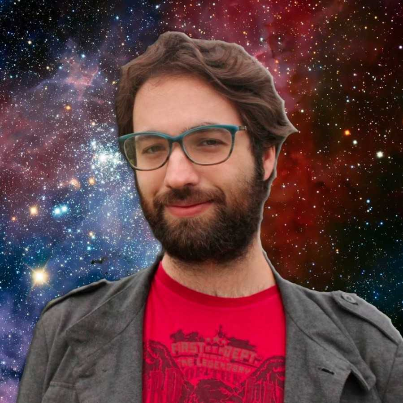 Diogo Pellegrina (postdoctoral fellow).
In 2020 I received my PhD degree in Bioinformatics from the university of Sao Paulo, where I analysed WGS and transcriptome data on cancer. I also inferred function of lncRNAs related to cancer using co-expression networks, and analysed microarray expression data. After finishing my PhD I joined Reimand Lab and I’m working on three projects; analyzing how mutational signatures from different tissues may affect disproportionately driver genes or phosphorylation sites, the effect of immunosuppressive drugs in liver transplant patients, and how germline variants may affect phosphorylation rewiring by COVID infection.
Diogo Pellegrina (postdoctoral fellow).
In 2020 I received my PhD degree in Bioinformatics from the university of Sao Paulo, where I analysed WGS and transcriptome data on cancer. I also inferred function of lncRNAs related to cancer using co-expression networks, and analysed microarray expression data. After finishing my PhD I joined Reimand Lab and I’m working on three projects; analyzing how mutational signatures from different tissues may affect disproportionately driver genes or phosphorylation sites, the effect of immunosuppressive drugs in liver transplant patients, and how germline variants may affect phosphorylation rewiring by COVID infection.
 Kevin Cheng (graduate student).
I received my BSc in biotechnology and MPhil in cell biology from the University of Hong Kong. I am currently a PhD student in Medical Biophysics. My research interest is in cancer treatment-induced mutation and their impact on tumors. I am studying mutation rate variation in regulatory genome elements associated with various treatments in metastatic tumors. I am also trying to find driver mutations that potentially contribute to drug resistance.
Kevin Cheng (graduate student).
I received my BSc in biotechnology and MPhil in cell biology from the University of Hong Kong. I am currently a PhD student in Medical Biophysics. My research interest is in cancer treatment-induced mutation and their impact on tumors. I am studying mutation rate variation in regulatory genome elements associated with various treatments in metastatic tumors. I am also trying to find driver mutations that potentially contribute to drug resistance.
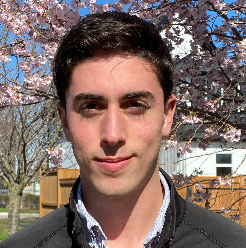 Alec Bahcheli (graduate student).
I am a PhD student in Computational Biology and Molecular Genetics at the University of Toronto. Prior to researching in the Reimand Lab I had completed an undergraduate and a Master’s degrees in Biochemistry from the University of Western Ontario. My recent work involves investigating different ‘omic’ data from high-grade gliomas to elucidate the evolution of these brain cancers. I am interested in understanding how observations from different cancer datasets reflect specific and recurrent biological phenomena in tumors.
Alec Bahcheli (graduate student).
I am a PhD student in Computational Biology and Molecular Genetics at the University of Toronto. Prior to researching in the Reimand Lab I had completed an undergraduate and a Master’s degrees in Biochemistry from the University of Western Ontario. My recent work involves investigating different ‘omic’ data from high-grade gliomas to elucidate the evolution of these brain cancers. I am interested in understanding how observations from different cancer datasets reflect specific and recurrent biological phenomena in tumors.
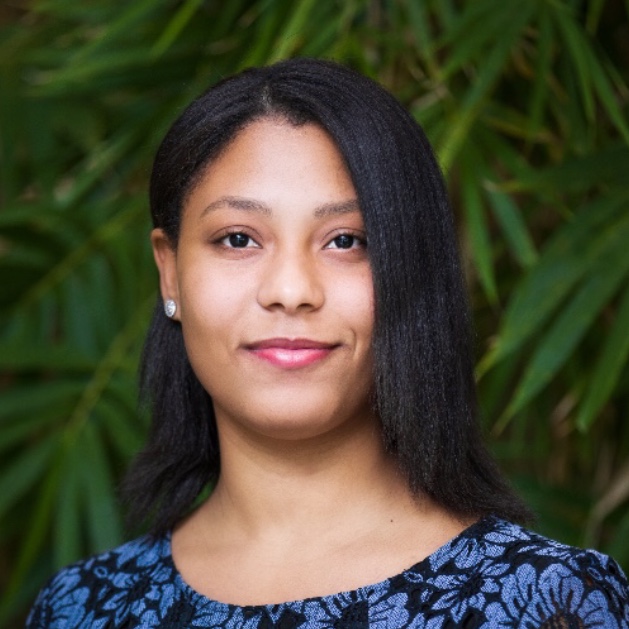 Nina Adler (student).
Prior to joining the lab in summer 2021, I graduated from the University of Toronto with a Bachelor’s in Molecular Genetics and a Master’s in Medical Genomics. I have a strong interest in cancer biomarker discovery, and my current project involves the exploration of an emerging target gene class as potential biomarkers for clinical outcomes.
Nina Adler (student).
Prior to joining the lab in summer 2021, I graduated from the University of Toronto with a Bachelor’s in Molecular Genetics and a Master’s in Medical Genomics. I have a strong interest in cancer biomarker discovery, and my current project involves the exploration of an emerging target gene class as potential biomarkers for clinical outcomes.
 Michael Slobodyanyuk (graduate student).
I am a graduate student at the University of Toronto in the department of Medical Biophysics. I previously completed a MSc at the University of Ottawa, studying the structure-function relationship of ligand-gated ion channels using electrophysiology techniques. I’m interested in using an integrative approach to study large datasets of genomes, epigenomes, and transcriptomes, with the ultimate goal of identifying key pathways and genes implicated in cancer biology.
Michael Slobodyanyuk (graduate student).
I am a graduate student at the University of Toronto in the department of Medical Biophysics. I previously completed a MSc at the University of Ottawa, studying the structure-function relationship of ligand-gated ion channels using electrophysiology techniques. I’m interested in using an integrative approach to study large datasets of genomes, epigenomes, and transcriptomes, with the ultimate goal of identifying key pathways and genes implicated in cancer biology.
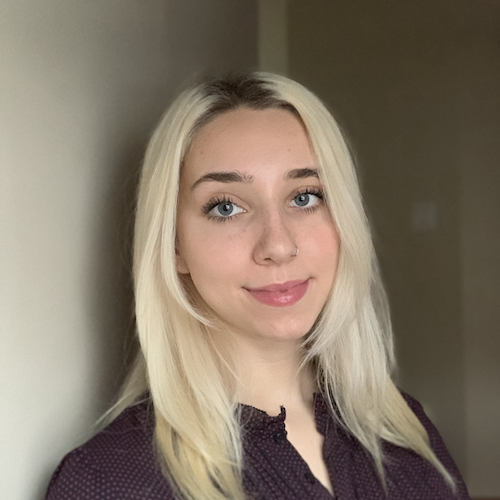 Zoe Klein (graduate student).
I received my BSc with an honours specialization in genetics from Western University, where I developed an interest in bioinformatics and computational biology. I am currently a graduate student at the Department of Molecular Genetics at the University of Toronto. In the Reimand lab, I am using computational tools to investigate the role of non-coding RNAs in cancer.
Zoe Klein (graduate student).
I received my BSc with an honours specialization in genetics from Western University, where I developed an interest in bioinformatics and computational biology. I am currently a graduate student at the Department of Molecular Genetics at the University of Toronto. In the Reimand lab, I am using computational tools to investigate the role of non-coding RNAs in cancer.
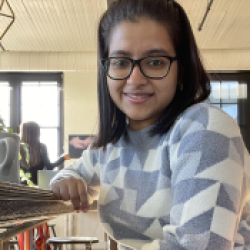 Jigyansa Mishra (graduate student).
I completed my undergraduate in Molecular Biology at the Indian Institute of Science, Bangalore. Subsequently, I transitioned to computational biology during my Master’s degree at the Ludwig Maximillian University of Munich, Germany, where I worked on identifying consensus subtypes of skin diseases by analysing RNAseq data. Currently, I am pursuing my PhD in Computational Biology at the Department of Molecular Genetics, University of Toronto. I am working on computational projects in the scope of multi-omics data integration, and protein interaction network analyses.
Jigyansa Mishra (graduate student).
I completed my undergraduate in Molecular Biology at the Indian Institute of Science, Bangalore. Subsequently, I transitioned to computational biology during my Master’s degree at the Ludwig Maximillian University of Munich, Germany, where I worked on identifying consensus subtypes of skin diseases by analysing RNAseq data. Currently, I am pursuing my PhD in Computational Biology at the Department of Molecular Genetics, University of Toronto. I am working on computational projects in the scope of multi-omics data integration, and protein interaction network analyses.
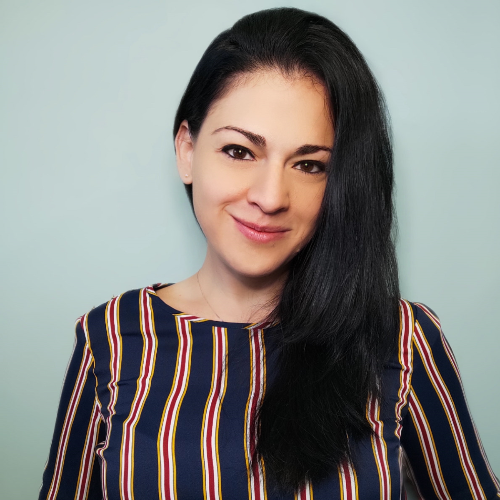 Kissy Guevara-Hoyer (visiting researcher).
I am an MD specialist in Clinical Immunology at the Hospital Clinico San Carlos in Madrid, Spain, where I am responsible for the emerging Research Unit on Immunomonitoring of Cancer and Immune-mediated diseases. I completed a PhD in Biomedical Research at the Complutense University of Madrid, Spain in 2020. Currently I am pursuing a master’s degree in Bioinformatics and Biostatistics from the University of Barcelona (UOC/UB). My research focuses on the crossroads between cancer and primary immunodeficiency using computational tools and predictive algorithms to analyze the mutational and expression signatures underlying common biologic processes and biomarkers shared by these diseases.
Kissy Guevara-Hoyer (visiting researcher).
I am an MD specialist in Clinical Immunology at the Hospital Clinico San Carlos in Madrid, Spain, where I am responsible for the emerging Research Unit on Immunomonitoring of Cancer and Immune-mediated diseases. I completed a PhD in Biomedical Research at the Complutense University of Madrid, Spain in 2020. Currently I am pursuing a master’s degree in Bioinformatics and Biostatistics from the University of Barcelona (UOC/UB). My research focuses on the crossroads between cancer and primary immunodeficiency using computational tools and predictive algorithms to analyze the mutational and expression signatures underlying common biologic processes and biomarkers shared by these diseases.
 Oliver Ocsenas (contributor).
I am a recent MSc. graduate from the University of Toronto, Department of Medical Biophysics, and I recently started a job as a data scientist at a consulting company. I continue in the lab as a contributor to finish a manuscript from my graduate studies. I received a BSc. from the University of Toronto, Department of Physics in the Biological Physics Specialist program. My master’s project focuses on investigating the associations between chromatin accessibility and regional mutation frequency in cancer. Chromatin accessibility is a strong predictor of regional mutation rates and we can use this association to better understand tissue of origin, mutational timing, and mutational processes in cancer. We use machine learning models such as random forest to elucidate these relationships and make inferences. My research interests include machine learning, mutational processes in cancer, epigenomics, and how normal cells transform and undergo oncogenesis.
Oliver Ocsenas (contributor).
I am a recent MSc. graduate from the University of Toronto, Department of Medical Biophysics, and I recently started a job as a data scientist at a consulting company. I continue in the lab as a contributor to finish a manuscript from my graduate studies. I received a BSc. from the University of Toronto, Department of Physics in the Biological Physics Specialist program. My master’s project focuses on investigating the associations between chromatin accessibility and regional mutation frequency in cancer. Chromatin accessibility is a strong predictor of regional mutation rates and we can use this association to better understand tissue of origin, mutational timing, and mutational processes in cancer. We use machine learning models such as random forest to elucidate these relationships and make inferences. My research interests include machine learning, mutational processes in cancer, epigenomics, and how normal cells transform and undergo oncogenesis.
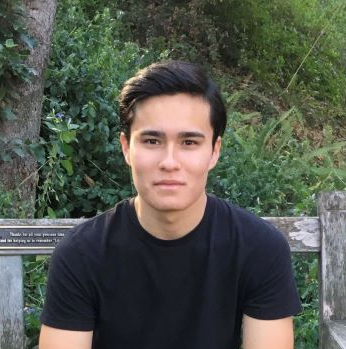 Christian Lee (contributor).
I am a recent MSc. graduate from the University of Toronto, Department of Medical Biophysics, and I recently started my medical studies. I continue in the lab as a contributor to finish a manuscript from my graduate studies. I grew up in California and moved to Toronto for my undergraduate studies. There, I developed an interest in genome and computational biology, which led me to graduate studies in Medical Biophysics. Broadly, I am interested in the interaction and integration of multi-level omics data. More recently, my work has focused on analyzing patterns of differential mutation frequencies across functional elements in cancer genomes.
Christian Lee (contributor).
I am a recent MSc. graduate from the University of Toronto, Department of Medical Biophysics, and I recently started my medical studies. I continue in the lab as a contributor to finish a manuscript from my graduate studies. I grew up in California and moved to Toronto for my undergraduate studies. There, I developed an interest in genome and computational biology, which led me to graduate studies in Medical Biophysics. Broadly, I am interested in the interaction and integration of multi-level omics data. More recently, my work has focused on analyzing patterns of differential mutation frequencies across functional elements in cancer genomes.